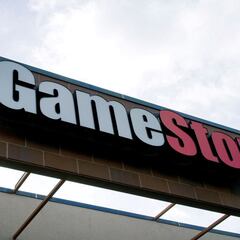Who is losing money on GameStop on the stock market?
When Reddit trolls used GameStop as a pawn in teaching the Wall Street establishment a lesson, someone had to lose. Who are the investors losing millions?

It's the now famous tale of a band of keyboard warriors who decided to bet big against gigantic financial institutions by changing the fortune of a video game retailer on the downturn called GameStop. It all started with a subreddit called WallStreetBets on the chat site Reddit. Quite literally against all odds - in what has now become a class war - some investors on Wall Street have now lost millions of dollars.
The amateur traders, whose subreddit bio is “Like 4chan found a Bloomberg Terminal” and led by user “DeepFuckingValue” organised themselves to gradually buy up shares in the retailer, forcing the price of GameStop’s stock into the heavens, simultaneously making a lot of money for themselves and crushing the strategy of the colossal hedge funds who’d bet against it. And surprisingly, it worked.
GameStop’s stock price jumped from $4 last summer to $20 at the end of 2020, to $40 two weeks ago. It was worth $100-ish at times on Monday and Tuesday and at its peak on Wednesday reached over $450.
Who has lost money on GameStop?
The Wall Street investors who had "shorted" stocks of GameStop were relying on the price falling so they could get their money out but a huge surge in investment has seen the price skyrocket and left them unable to close their positions.
Two big hedge funds, Melvin Capital and Citron Research, are thought to have been the most exposed. The former is believed to have lost around 30% of its $12.5 billion under management already this year on a series of shorts, which includes GameStop.
Business Insider predicts that combined, short sellers have lost over $5 billion in betting against GameStop so far and has compiled a list of funds that have now lost out to the "Reddit army"; Point72 Asset Management, D1 Capital Partners, Maplelane Capital, Candlestick Capital Management and of course, Melvin and Citron mentioned above.
According to Reuters, global equity markets have also suffered as some funds were forced to sell some of their best-performing stocks, including Apple, to cover billions of dollars of losses.
Reddit traders who were smart enough to get out while the going was good – at the peak a share in GameStock was over 100 times August’s value – will have made a life-changing amount of money.
Others won't be so lucky. Now that the play is truly out in the open, the fact remains that GameStop's shares are unlikely to remain high for very long and so anyone who is still buying stocks with the retailer at the inflated prices stand to lose out.
With regards to damage control, J.P. Morgan has now listed 45 stocks that may be vulnerable to future “fragility events” like this in days to come, including real estate company Macerich Co, restaurant chain Cheesecake Factory Inc and clothing subscription service Stitch Fix Inc.
I've been laughing for ten minutes because apparently Wall Street Bets fucking bodied a hedge fund that was shorting Gamestop and now the hedge fund needs a $2.75 billion bailout lmao https://t.co/1WdE2Lx5jo
— Edward Ongweso Jr (@bigblackjacobin) January 25, 2021
Robinhood app resumes trading in GameStop
Amateur traders on the stock market like the now-famous Reddit traders are enabled by commission-free trading apps, making it possible for "normal people" to buy and sell stocks as they please. In essence this democratised the whole system.
Until Thursday, when several brokers including Robinhood, Ameritrade and Charles Schwab restricted trading of GameStop as well as a handful of other stocks on their platforms.
Following the restrictions, GameStop stocks plummeted. But Friday morning Robinhood lifted some of those contested restrictions and GameStop remained a hot ticket, instantly jumping 50%.
The restrictions placed on Thursday sparked allegations that the hedge funds had wielded influence over Robinhood and other trading platforms to stop the upward rally. Robinhood's ethos, as expressed in a tweet from 2016 has been brought into question. "Let the people trade," the company stated.
Let the people trade.
— Robinhood (@RobinhoodApp) March 23, 2016
Why GameStop?
So what made the members of subreddit WallStreetBets choose to toy with GameStop in particular?
The 37-year-old retailer is actually the largest physical video game retailer in the US, hardly a classic underdog. However this accolade holds significantly less weight than it did in the 1990’s and the company had a bleak outlook with the coronavirus pandemic forcing them to close stores; increased competition and consumers increasingly using online stores to purchase the latest games.
It operates 5,509 retail stores throughout the US, Canada, Australia, New Zealand and Europe and trades as NYSE:GMO in the S&P 600 index.
The stock was seen as so unlikely to succeed that it became one of the most 'shorted' on the market, meaning that investors and hedge fund managers were betting that the price would fall.
What is short selling?
In short… it’s the practice of betting against the success of the company - that its stocks will go down in price. A vote of no confidence, in other words.
When someone ‘short sells’ a stock, they borrow and sell on shares of a stock that they do not own, based on the assumption that it will be worth less in the future and when all goes well, they close their deal by buying more stock for less money, giving back the stock to the owner and pocketing the difference.
If the bet is misjudged and the stock ends up increasing in price instead of decreasing, the trader is “exposed” and has to pay the difference. This phenomenon, where the trader is forced to sell the stock for a higher price instead of a lower one is called a "short squeeze". And if the price keeps going up, well, the loss just grows and grows.
Related stories
Short selling is one of the most risky practices in trading, but can be one of the most lucrative.
When big hedge funds short sell a company by millions of dollars they effectively push the price of the stock down, spreading a negative perception of the stock.


